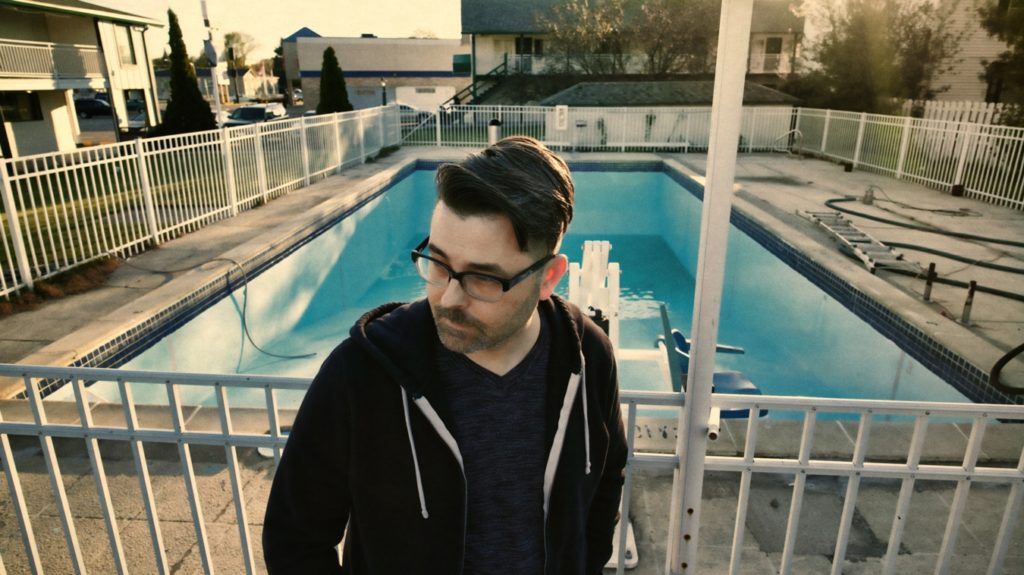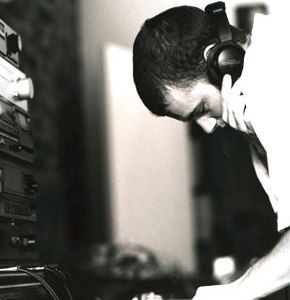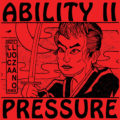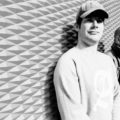Deepchord records co-founder Mike Schommer makes his return to music after 15 years
Ahead of his first EP in 15 years, Deepchord co-founder Mike Schommer talks to us about his return to making music and life in and outside of Detroit.
Tell us a bit about your upbringing and experiences of growing up in Detroit, what’s your take on the city…
“Although I did live in Detroit for a period of time, I grew up about an hour north of the city. I was terrified of Detroit as a young child. During “Devil’s Night” the news media would broadcast live video from their helicopters showing the city engulfed in flames from hundreds of house fires. The news always had something horrible to say about Detroit and rarely anything encouraging. In my youth, I couldn’t help but have a negative view of the city. My perception started to change though when I began to get involved in punk and industrial music. I spent a lot of time in the city going to shows. When I stopped viewing Detroit through the lens of a television camera, I began to appreciate it. In fact, I liked it so much that my wife and I eventually moved there during the Deepchord Records days. We rented a loft above the Rocky Peanut Company in Detroit’s Eastern Market. I built a studio and recorded most of my records there. We had the occasional break-in but enjoyed our time in the market. The weekends were busy, and there was always something to do.”
You come from quite an artistic family, what sort of influence did this have on you?
“Growing up in an artistic family had a huge influence on me. My father is an accomplished artist with a vast body of work stretching all the back to his days at the Detroit Society of Arts & Crafts. My brother and sister are both established artists in Chicago. My mother paints and my oldest sister writes and is very creative. Art was very prevalent in our home. Sketchbooks, canvases, and paintings were stacked all over the place. The smell of Grumbacher paint and the sound of music was always in the air. My father would paint with Mozart while my mother worked the brushes for Elvis. My sister stirred up a graphite storm cloud with the aid of a Prince record and my younger brother would fine-tune his illustration techniques with Tom Waits. It was a very eclectic home (artistically and musically speaking).
Artistic styles and musical genres were flying all over the place like a creative blender with its lid off. I drew and painted a little myself but soon found out that music was my passion, so my mother encouraged me to learn an instrument. I took guitar lessons for many years and was involved in several bands. If I needed to turn the living room into a makeshift recording studio, or we needed someone to work the door at one of our shows, my family was always there to help. I’m still influenced by my family’s art today. “
Your original background in music started with playing in bands, how aware were you of the Techno scene in Detroit growing up?
“To be honest, any awareness was peripheral. Since I was involved in more punk and industrial circles, I didn’t pay much attention to the techno scene. The musical influences around me during that time in my life weren’t of the techno ilk so unfortunately the opportunity never really came up. I spent most of my time in mosh pits at The Shelter or St. Andrew’s with acts like Fugazi and Pigface. It wasn’t until I picked up “Pagan Tango” at Wax Trax! one day that I became interested in the wider realm of electronic music that ultimately led me to techno music.”
“The Electrifying Mojo” is often cited as a big figure in influencing people from the city, did his radio show play a part in your life?
“Since I was north of the city during that time, it was difficult to tune in to the good radio stations. I would balance my stereo on the windowsill and try to get the Detroit radio stations with a coat hanger antenna, but it rarely worked. Unfortunately, as a result, I wasn’t able to experience The Electrifying Mojo in the way others have.”
What was your first experience of dance/techno music in terms of going out all night?
“One of the first times I experienced techno music was when Rod Modell took me along to see Carlos Souffront at an old auto manufacturing building on Franklin Street. When we arrived, I couldn’t help but feel claustrophobic. I thought I was going to have a panic attack! The place was tiny, crowded and damn, damn, damn hot. Techno music was bouncing off the red-brick walls and penetrating my skull like a jackhammer. When Carlos got behind the decks and started cranking out some ultra minimal tunes, I instantly fell in love. The more minimal his set got, the more I was inspired. Early in the morning, we ended up on the People Mover drinking gas station coffee and shooting Super 8mm film from the train while the sun came up. Generally speaking, I’ve always been more of an old man/coffee drinking hermit by nature, so full-on partying was never really for me. I always felt more at home at places like Zoots, or 13 Below where the atmosphere was laid-back.”
How did yourself and Rod meet?
“I think Rod was friends with my sister, but we didn’t connect until I was recording one of my bands in a studio owned by his Waveform Transmission counterpart (Chris Troy). They invited me to their Silent Records release party and once I heard what they were doing with synthesizers and shortwave radios I had to find out more. Over the course of several years, we became good friends. Through Rod, I became exposed to a lot of interesting music. He acted as a musical mentor by guiding me with gear purchases, mastering my early tracks and even helping me get my first record released on a Plus 8 sub-label (Development). At one point we became neighbors and began to collaborate on different projects. After many talks, we decided that if we were going to get our brand of techno music published… we needed to start up Deepchord Records (A term that Rod commonly used when referring to that “deep chord” hit found in many or our tracks).”
What was it about the whole dubbed out aesthetic that led you in that direction?
“With this particular style of music, you could fire everything up and never know what was going to happen. The unpredictability of a track’s outcome was attractive to me. At first, I never thought that anyone would like what I was doing musically. People would ask me what kind of music we were producing and there wasn’t a name for the genre at the time, so all I could do is fumble out a string of descriptive words… “It’s dirty, lo-fi, minimal, repetitive, noisy, techno with a lot of effects.” Those same words that I used to describe the music are the reasons I was attracted to the lonely aesthetic. They didn’t provide the most sellable description, but then again, I certainly didn’t think many people would want to spend their hard-earned cash on this stuff anyway.”
At what point did you realise your music was really going places?
“When we first sent promo copies to Watts for distribution they sent us a purchase order for just under a thousand records. We were a new label just getting started, so we understood that they needed to be conservative. We were just thrilled to have a reputable distributor handle the catalog. I guess it became evident that we were onto something when they began sending larger POs right after the first 12″ and Archer had to repress our records almost immediately. I remember thinking… “How could there be that many people in the world that would like our music?” It started to get interesting.”
There seems to be quite a lot of stories behind the making of all the Deepchord EPs – is there one you’d say was your most memorable?
“Each release has a unique story behind it for sure, but the most memorable experience was my last release on Deepchord Records (DC15). I mixed this full-length project at the Crown Motel on Woodward/McNichols in Detroit. This motel was a class A dump! The only people that were crazy enough to rent rooms from the Crown were prostitutes, drug addicts, and dub techno musicians. After talking with the attendant, Rod and I drove into the courtyard to find hookers and various drug dealings taking place. At that point, I knew it was the perfect place to mix my project. It took us about thirty minutes to haul my PS3100 and a pile of esoteric equipment into a ground level motel room. I was concerned with all that gear going back and forth between the car and room, but most people were bewildered as to what was going on. They probably thought we were hauling in antique telephone equipment or something (until the windows started to rattle!) With all of my gear spread out over the nasty stained up motel bed (patch cables running everywhere), I flung open the heavy drapes and overlooked the magnificent Crown Motel courtyard, cranked the speakers, and began mixing the depressing grit and grime of the transient life that was before my eyes. As I was recording, the environment became impregnated into the music much like the stains in the permanently soiled carpets of the motel room floor. It’s been 15 years since recording the Crown project, and I’ve recently returned to producing music with that same sense of exploration, vigor, and passion. My hope is to create many more memorable experiences in the future to share with all of my good friends out there that have patiently awaited my return.”
15 years is a long time to spend away from music, tell us a bit more about your time out:
“With our first child on the way in 2002, Tarah and I decided to move north out of Detroit, and purchase a small house in my rural home town. There, I spent most of my time fixing up our home, raising our family, and growing a web development company (that I started with a friend). Staying ahead of everyday expenses / obligations became my primary concern. With these added responsibilities, finding time to work on new music seemed like an impossibility. Shortly after our performance at the DEMF, the moment came one night when I told Rod Modell that I wouldn’t be keeping up with the Deepchord releases any longer.
Over the following years I suppressed the desire to create music. I stopped listening to ALL music in lieu of (mostly) AM talk radio. It was difficult. I would often hear acquaintances talk about their “music-making past” as a very significant period in their lives, and more importantly… the regrets they harboured about not being able to still do it today. It was depressing thinking that I could be in this position someday.
More recently, I wondered if I was using all of my talents and gifts properly. My passion to produce music has grown intensely over the last few years. I often reflected about how my father managed to find time to create art while raising his children. I remember him working late nights in his studio after the family went to bed. He always carved out time to paint, and he still does today. Because of his example, coupled with persuasion from my wife and Rod, and an overwhelming urge to record again… I knew it couldn’t be ignored any longer, and it was time to begin again. In hindsight, my hiatus from the music-world turned out to be an important period of growth in my life. The off-period allowed me time to focus on other important things. I’ve matured a great deal spiritually, and discovered the joys of fatherhood and raising a family. “
Has your approach to making music changed?
“My abstinence from music has allowed me the benefit of returning with a clear palate. I approach music differently today than I did 20 years ago. Today, I don’t have any preconceptions of what a track should sound like in advance, or feel compelled to make music that suits a particular audience. I feel more focused on making music that flows directly from my heart and soul without prerequisites. I’m looking forward to sharing my recent works soon. You can expect some releases in 2017 (announcement forthcoming), and to all of you that have welcomed me out of hibernation… I say thank you! I’ve really enjoyed our conversations and I can’t wait to share my musical vision again.”
Mike Schommer’s “Anamnesis Ep” is out on Mosaic 18th September 2017





